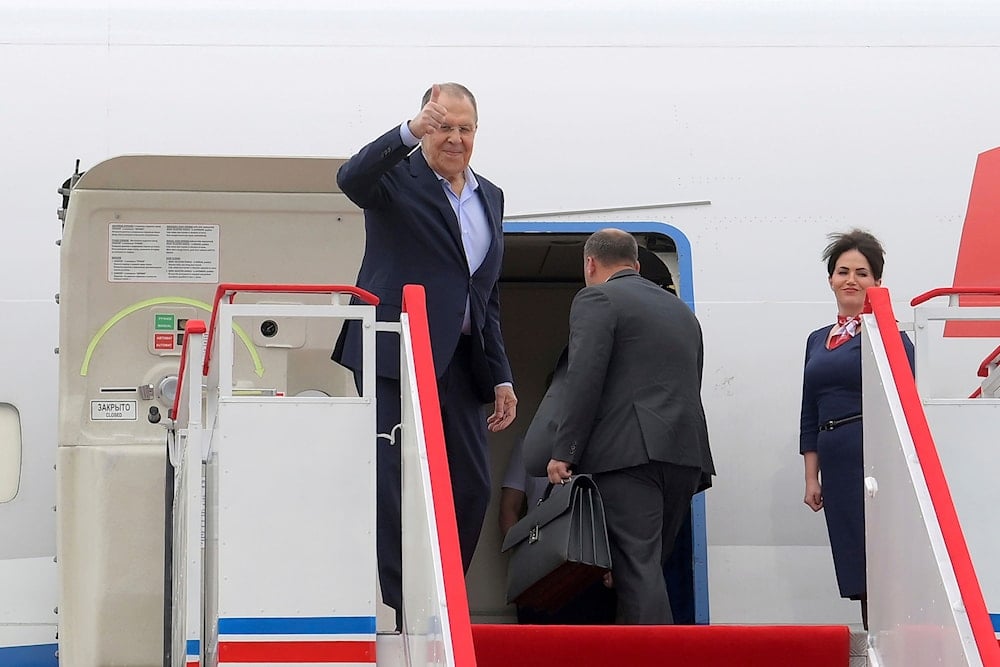Lavrov seeks clarity on Trump's ceasefire or secondary tariffs threat
Russian Foreign Minister Sergey Lavrov questions US President Donald Trump's claim of a Ukraine ceasefire within 50 days, citing growing EU and NATO pressure on the US.
-

In this photo provided by the North Korean government, Russian Foreign Minister Sergey Lavrov, left, prepares to depart at Wonsan Kalma Airport, Kangwon Province, DPRK, Sunday, July 13, 2025 (Korean Central News Agency/Korea News Service via AP)
Russian Foreign Minister Sergey Lavrov said on Tuesday that Moscow is seeking to understand the reasoning behind US President Donald Trump’s recent remark where he threatened to impose 100% secondary tariffs on Russia if it fails to reach a ceasefire deal with Ukraine in 50 days.
Lavrov questions timeline for Ukraine ceasefire
“We’re trying to understand what exactly lies behind this statement,” Lavrov said during a press conference following the Shanghai Cooperation Organization (SCO) foreign ministers’ meeting. “At one point, it was supposed to take 24 hours, then 100 days, and now 50. We’ve heard this before and want to understand what’s really motivating the US president.”
Lavrov pointed to increasing pressure from both the European Union and NATO on President Trump. He noted that both blocs continue to support Ukrainian President Volodymyr Zelensky's calls for advanced Western weapons, which have only prolonged the Ukraine conflict.
Russia warns against new sanctions
Commenting on the broader geopolitical landscape, Lavrov criticized Brussels' efforts to escalate the sanctions campaign against Russia, suggesting they are attempting to drag Washington further into it.
“The sanctions that the EU has now imposed and that are being prepared again in Brussels are trying to drag the US into the sanctions vortex, but President Trump very specifically explained that Europe will pay for all this,” Lavrov said.
He added that the economic toll of these measures is already evident across the continent. “Serious European analysts and political experts acknowledge that the EU itself is paying the highest price for this sanctions war,” he said, highlighting growing internal concerns over the policy’s long-term impact.
Moscow confident in its economic resilience
Despite the threat of further sanctions, Lavrov expressed confidence in Russia’s ability to withstand economic pressure.
“This conclusion is also based on an assessment, on an analysis of independent, including many Western economists and politicians,” Lavrov stated. “Our trade partners hear what has been said, but they can hardly predict their actions now.”
Lavrov emphasized that Russia’s key trade partners remain committed to their international obligations. “They have international obligations and, knowing our partners, I do not see how they can abandon their independent policy, the policy of observing agreements reached both through bilateral channels and in multilateral formats,” he said.
Despite being the most sanctioned country in the world, with around 21,690 sanctions imposed on it, Russia's economy showed striking tenacity. Its GDP witnessed an estimated 4.0% growth in 2024, up from 2.2% in 2023. Additionally, Russia managed to conduct more than 80% of its foreign trade agreements in rubles or friendly country currencies, diminishing its reliance on Western countries.

 3 Min Read
3 Min Read










